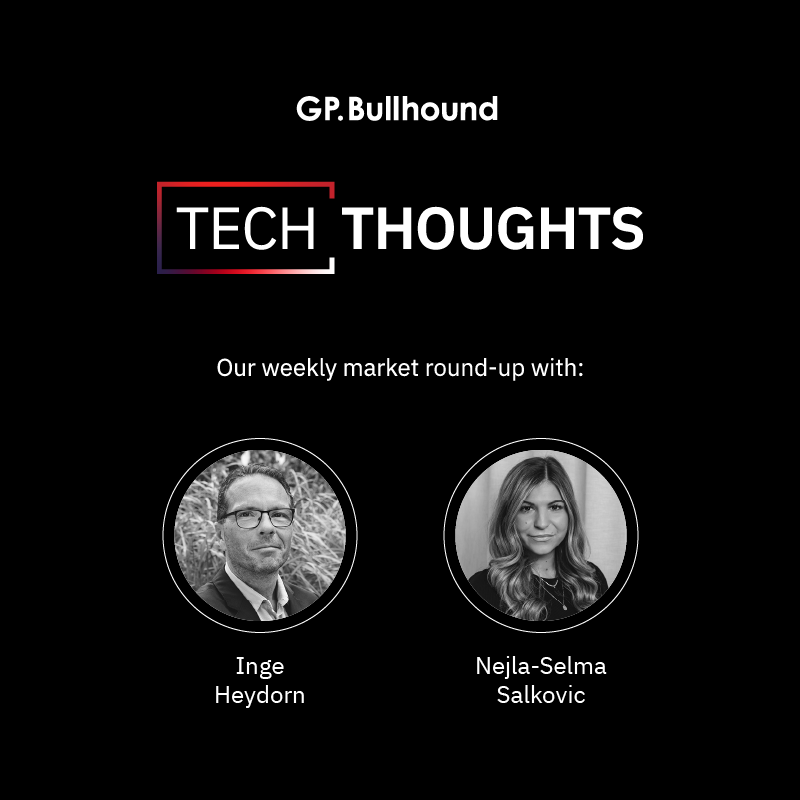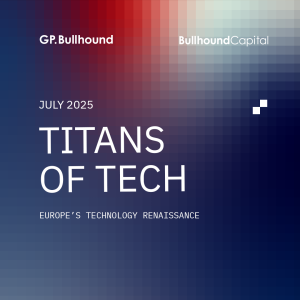Tech Thoughts Newsletter – 1 March 2024.

Market: The market has not decided if it should continue to rally or if it’s time to take some profit. We saw some profit taking ahead of the PCE number and some selling of the YTD winners this week.
Portfolio: We reduced the risk of the portfolio ahead of the Workday results by significantly reducing the position and bought it back after the results. We also increased our position in Alphabet during the week after their AI problems led to a weak share price development.
- Workday reported a small beat on the bottom line for the quarter, while the top line was in line with expectations. The company also reiterated its subscription guidance for FY25 at $7,725bn to £7,775bn, representing a 17-18% growth. The market saw that as a slight negative as it hoped for a small lift in guidance from the company. We think there is room for the company to beat the guidance, but there is no reason for them to push things this early into the year.
- The company expects FY25 non-gap margin to total 24.5%. The company is investing heavily in AI and widening its partner program, especially towards smaller businesses. The healthcare vertical stood out with a growth of 50% Y/Y in 4Q.
Our view (owned): We reduced our position going into the numbers as the shares had been performing strongly, and we didn’t have strong enough data points for a large beat from the company. We bought back the shares after the results as they traded down, and the numbers were good. We think Workday is a strong winner in the software segment.
- Salesforce 4Q results aligned with expectations on top and bottom line, growing 11% year-over-year and 10% in constant currency. The company guidance for the topline to grow around 9% Y/Y was just shy of consensus forecast, while the margin guidance of 32.5% was well above forecasts. We believe the company sales forecast can be somewhat conservative, while the margin forecasted to lift by 200 basis points after 800 basis points last year is very impressive. The margins are helped by the company’s deals, which are becoming platform deals, with customers buying more products from Salesforce. The company states that eight out of the top 10 deals in the quarter included six or more clouds.
- The booking growth has improved for the company in the last two quarters, and the interest in AI Einstein has been very high, driving the interest in their Data Cloud. Adding Data to the Data Cloud is the first step for the clients to use the AI tools from Salesforce. The Einstein copilot is being tested now, and during the Trailhead DX conference next week, the company will release several new AI products.
- The company states that while Einstein AI is lifting the average sales price and attracting new clients, 15% of the companies that bought Einstein AI so far have been new logos.
Our view (owned): Salesforce is another platform consolidation winner like Workday. The company is impressively improving its margins and could accelerate growth later this year. On top of that, it has joined Meta by installing a dividend.
- Snowflake beat quarterly expectations quite handsomely, and order bookings were strong. Remaining performance obligations totalled $5.2bn, showing accelerating growth, up 41% Y/Y. However, the company guidance for FY25 is well below expectations, at 22% product growth vs consensus expectations of around 30%. The company has taken a very cautious view towards the development for the year, basing the forecast on the demand seen during the last year. The company is not incorporating any new sales from new products and expects storage sales to hurt top line by around 6% as clients change how they store on Snowflake. The company also state that clients have become more offensive in their strategies, although it admits that there will always be a focus on optimising workloads. We believe the change in top management also plays into their more cautious stance on guidance.
Our view (owned, small position): We are not surprised that the shares are taking a beating after the weak guidance as investors, including us, expected accelerating growth going forward, helped by AI demand. Booking has accelerated but will take time to play out. The company has taken a very cautious stance towards performance for the year and should beat guidance given the trends we see.
- PC market – HPQ topline for the quarter was weaker than expected, reflecting a prolonged recovery. Personal Systems (PC) sales were down 4% Y/Y. However, units were up 5% in total, driven by consumer up 10% and commercial up 2%. The company still expects the PC market to show low single-digit growth in 2024, with a stronger second half helped by AI PC shipments.
Our view (not owned): We expect a slow recovery in the PC market this year. For the semiconductor companies, it will look stronger as inventory adjustments are done.
- Semiconductors in India – The Indian government has approved grants worth £15.2bn for building semiconductor capacity in the country. India and Europe have been behind the curve in building out their semiconductor supply chain.
Our view: This is the first step taken by India to become less dependent on semiconductor imports. Building their supply chain will cost much more in subsidies money to succeed – good news for the equipment vendors.
- AI Memory – This week, there has been a lot of noise around the demand and supply of AI HBM memory. SK Hynix stated that it sold out for the year, and there were claims that it ordered 8 EUV tools for production to boost capacity.
Our view: The DRAM market looks to improve in 2024 and 2025, driven by the demand for HBM DRAM. This will be positive for the equipment names in the sector like ASML, Tokyo Electron, Lam Research and Applied Materials.

For enquiries, please contact:
Inge Heydorn, Partner, at inge.heydorn@gpbullhound.com
Nejla-Selma Salkovic, Associate, at nejla-selma.salkovic@gpbullhound.com
About GP Bullhound
GP Bullhound is a leading technology advisory and investment firm, providing transaction advice and capital to the world’s best entrepreneurs and founders. Founded in 1999 in London and Menlo Park, the firm today has 14 offices spanning Europe, the US and Asia.



